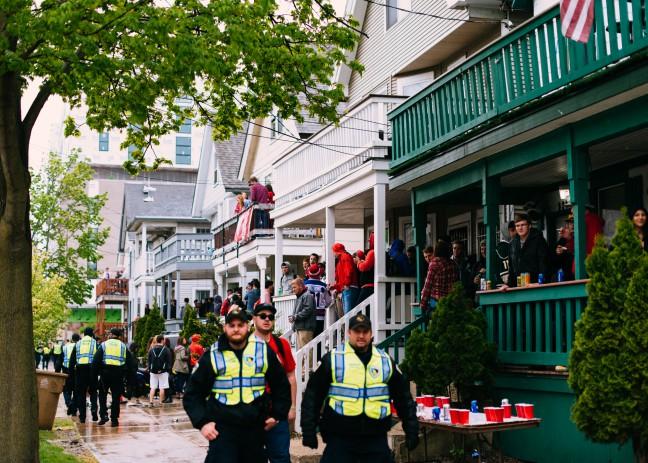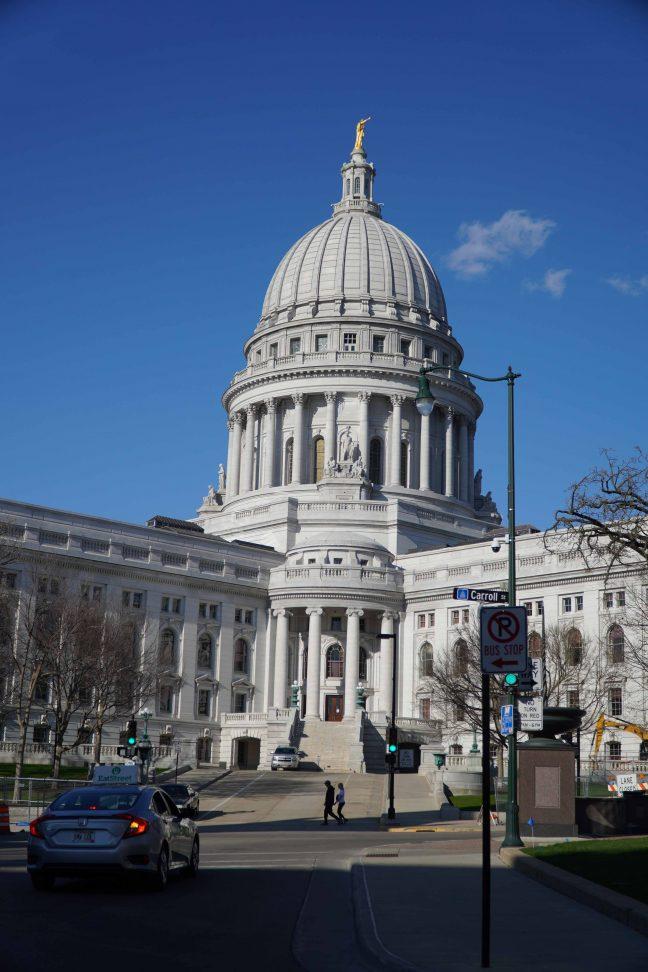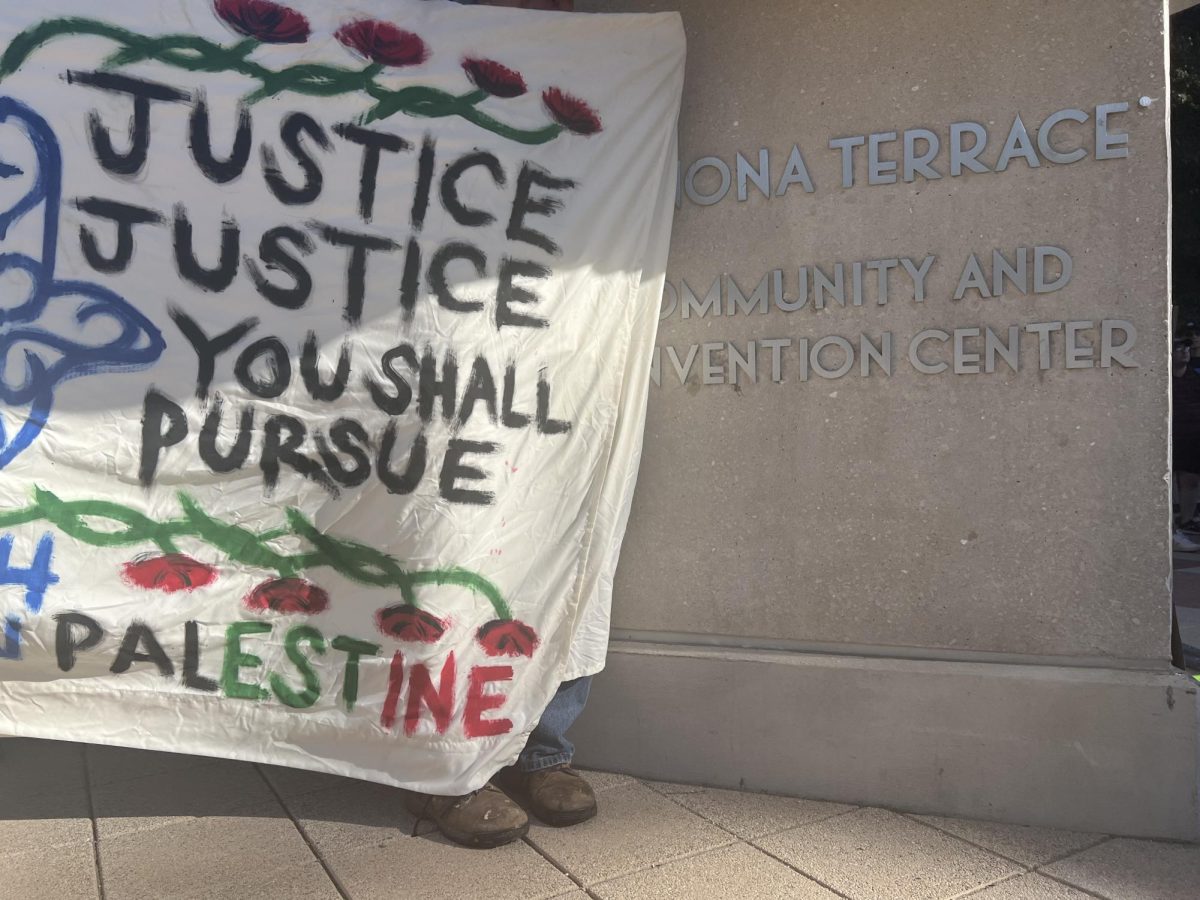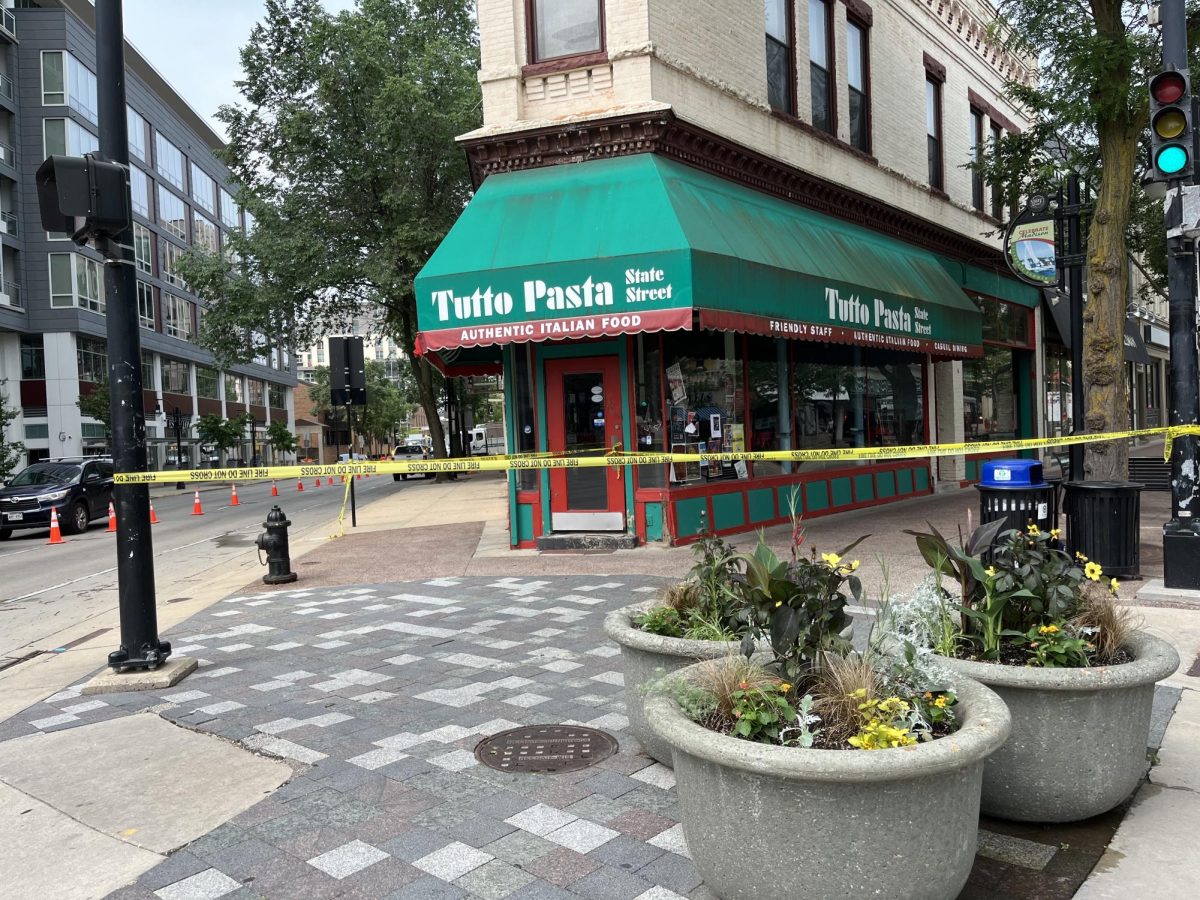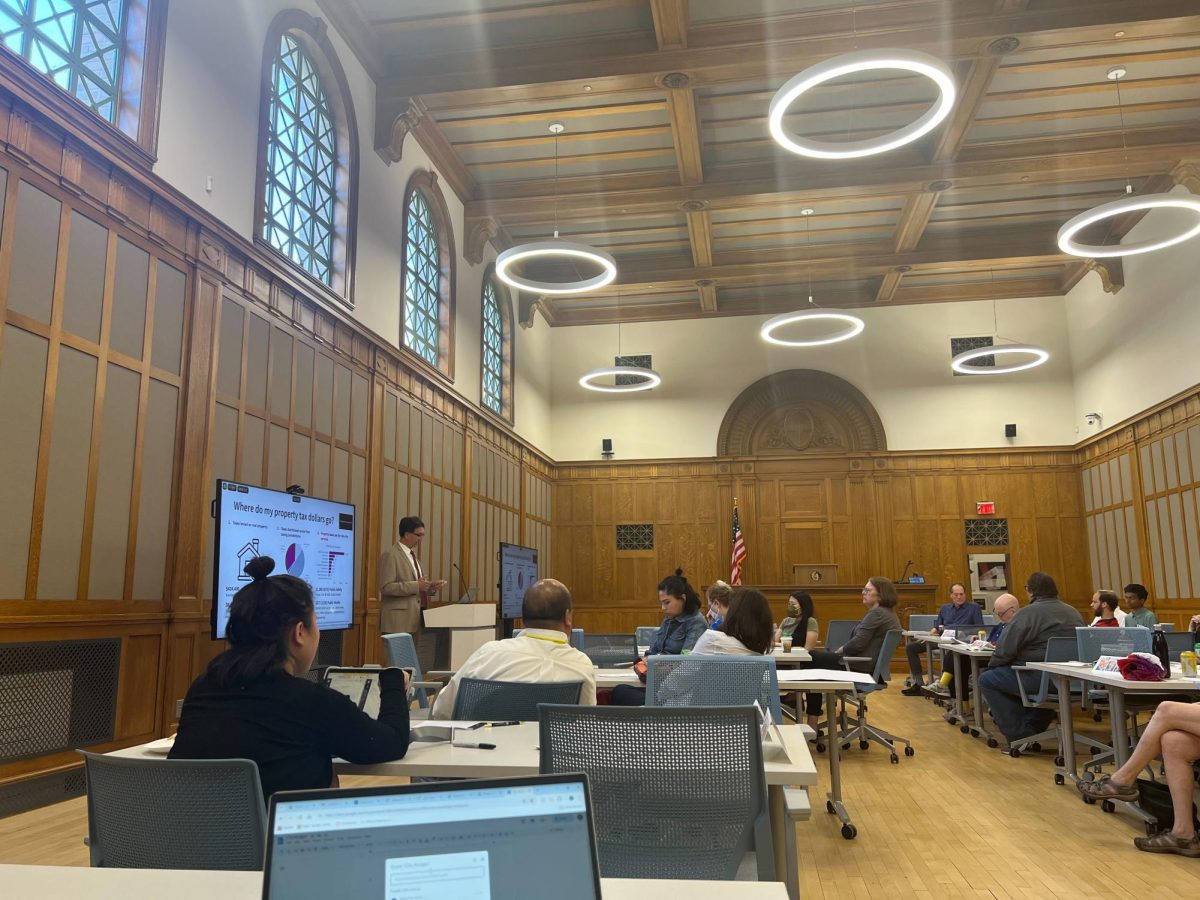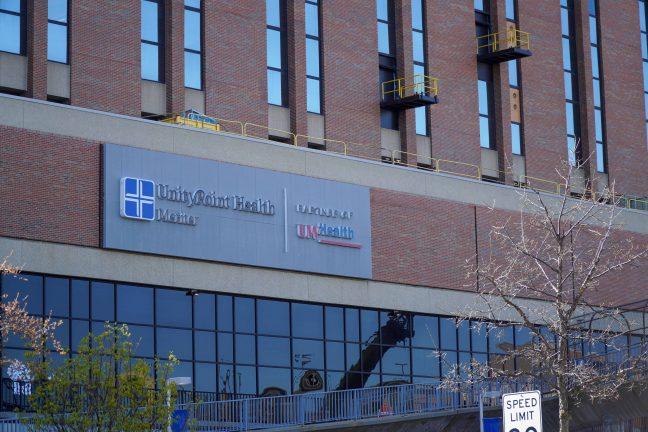University of Wisconsin students will gather on Mifflin Street April 27 to celebrate spring one last time before finals, marking the 50th anniversary of the 1969 Mifflin Street Riot.
Remembering the barricades and nightsticks that accompanied the first Mifflin, then-UW freshman David Williams drew a stark contrast between that and the Don’t Go” t-shirts and beer cans, which have become Mifflin staples.
It all started when UW students were denied a permit to hold a street dance in protest of the Vietnam War, Williams said.
Madison launches new planning effort aimed at improving, modernizing Mifflin neighborhood
Students decided to put speakers on their roofs anyway and police responded to a noise complaint with riot gear, said Francesca Rheannon, who lived on Mifflin at the time.
This extreme response was the result of rising tensions between police and UW students, Stu Levitan, author of “Madison: The Illustrated Sesquicentennial History, Volume 1, 1856–1931” and “Madison in the Sixties,” said.
Levitan said after the 1967 DOW Chemical protests and the Black Student Strike earlier that year, relations between students and police were strained.
“The cops are working class, blue collar guys living on the East Side, most of them are townies, few of them have gone to college,” Levitan said. “They resented these wimpy-ass college kids who are doing nothing but tearing down the country and bad mouthing the president and having sex and doing drugs … it’s a deep-seated antagonism.”
The animosity between police and students was worsened by the previous protests at UW, Levitan said. While students were hurt at these protests, police were also beaten badly, Levitan said, adding that police saw Mifflin as “payback for DOW.”
The 1969 Mifflin escalated quickly. Williams said once police showed up, he and several other students began gathering “projectiles” — rocks and bricks that they then threw at police who retaliated with nightsticks and tear gas.
Rheannon recalled being clubbed in the leg by police and then later spending the night in jail.
Williams said he and a few friends bribed a truck driver to give them his keys for a few cases of beer. They then used the truck and furniture to barricade the street and proceeded to throw whatever they could at the police.
These three days of violence and destruction had a big impact, Levitan said. They signified a need for real change.
“Here was the clearest manifestation of hostility between the police and the youth community that turns what should have been a spring party into a three-night riot,” Levitan said.
The Mifflin riot resulted in community-wide change. Levitan said the Madison community realized UW students had something to say and community members began to listen.
A new police chief, David Couper, was appointed shortly after that first Mifflin. Levitan said Couper fired many of the cops who had “busted heads” at Mifflin and built a better relationship between students and police.
Because of changes in both student-police relations and in how police address protests it is unlikely something like the Mifflin riots would happen in Madison today, Williams said.
Rheannon, who lived a just a few blocks away from the Occupy Wall Street movement in New York, said today, police are very organized and very “intent on nipping things in the bud.” This makes it harder for protests to organize the way they did in the 60s.
There are many factors that contributed to the shift from protest-fueled riot to the current Mifflin block party which is sponsored by an apparel company, Wisconsin Red.
Levitan said in the sixties, Mifflin did not have much of a drinking culture, but instead a culture surrounding marijuana and LSD.
Students at UW in the 60s were also particularly focused on social justice issues, Rheannon noted. Many of her friends at UW continued to be involved in social movements throughout their lives.
“Political engagement was our lifestyle back then,” Rheannon said. “Once you see what’s going on, I don’t know how you forget it if you care about yourself and your kids and your life and the world and justice. You just can’t stop fighting for what’s right.”
Rheannon said Ronald Reagan’s presidency made a huge impact on the protest movement. She said the U.S. was more dedicated to social justice before Reagan was elected because he led to the rise of capitalism.
Warm weather bring 15,000 partiers out for Mifflin Street Block Party
Reagan brought the “defanging of political engagement,” according to Rheannon, who said people became more focused on big business under Reagan.
But Rheannon believes this is changing. She said youth like her 15-year-old granddaughter, who attended the Youth Climate Strike, are renewing society’s interest in political engagement.
Williams said it is important that current UW students know the history of Mifflin, which is why he is holding a symposium, “The May ’69 ‘Battle of Miffland’ & Its Legacy,” May 4.
Today, Mifflin may be more of a party than a protest but to Levitan, it is still reflective of the original Mifflin.
“If it becomes nothing but a party, that’s reverting to its original intent,” Levitan said. “I will not criticize the current students for turning Mifflin back into a party because that’s what it’s supposed to be. It was a party that had a political legacy imposed on it because of what happened.”








